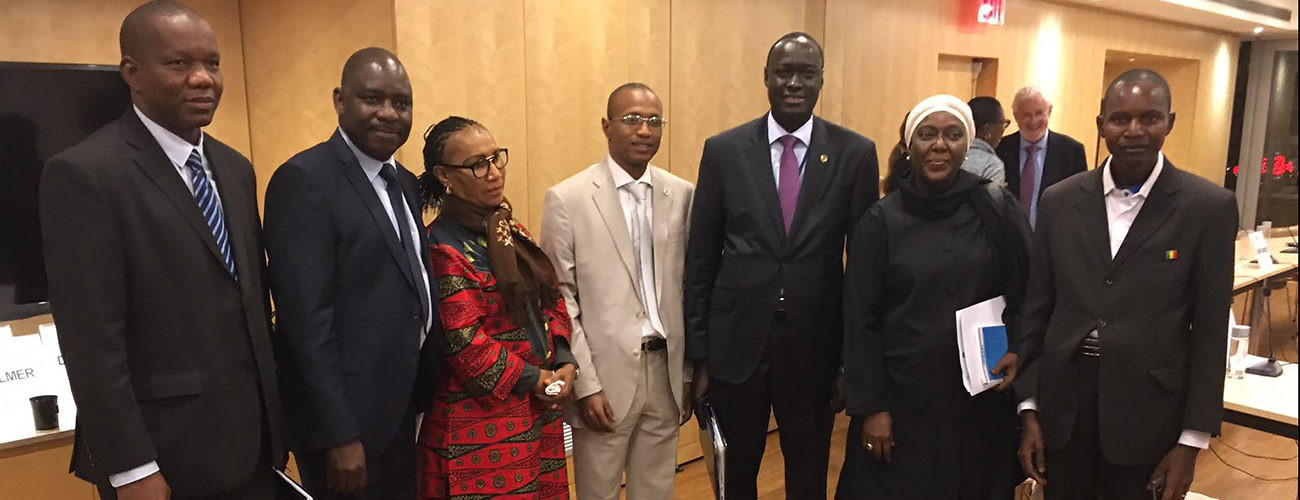Representatives from member states, the UN Secretariat, and experts from civil society organizations and think tanks discussed the challenges and opportunities to civil society engagement in the Malian peace process, in particular in the context of the upcoming National Reconciliation Conference (Conference d’Entente Nationale), due to take place in December 2016 in Bamako, Mali. This roundtable event, jointly organized by IPI and the Global Partnership for the Prevention of Armed Conflict (GPPAC), took place at IPI on November 8, 2016.
Four Malian civil society actors presented an overview of the current situation in Mali and remaining challenges to civil society’s full engagement in the peace process. Boubacar Thera, West Africa Network for Peacebuilding in Mali (WANEP-Mali), spoke about progress made, with support from international donors and NGOs, in ensuring that civil society representatives have been able to contribute to protecting civilians in Mali by monitoring human rights violations, contributing to assessing root causes of the 2012 crisis, and creating space and opportunities for dialogue.
Maître Saran Keïta, Women’s Peace and Security Network in the ECOWAS Region (REPSFECO-Mali), highlighted, in particular, the important monitoring role of civil society to observe the implementation of the peace accord and to ensure that its content reaches local communities. Néné Konaté, from the Malian Institute of Research and Action for Peace (IMRAP), added that civil society actors could help support participative processes throughout the country, as indeed local ownership of the peace accord is essential to durable peace in Mali. Professor Aguissa Ag Mohamed, Malian Coalition for the International Criminal Court (CM-CPI) and Observatory for Human Rights and Peace (ODHP), noted that despite all its potential and willingness to see the process moving forward, civil society actors suffer from limited resources.
Overall, civil society actors called for inclusive dialogue and a greater role for civil society in the follow-up to the peace accord, including for the upcoming Conference d’Entente Nationale. They noted a particular gap in the participation of youth and women in the implementation of the peace agreement. They submitted that civil society could play a central role in creating a permanent dialogue framework to work with community leaders in Mali. This could act as a form of multi-stakeholder platform to connect local actors with broader processes, thus contributing to long-term sustainable peace in the country. The recent establishment of interim authorities and the upcoming national reconciliation conference offer opportunities that will need to be leveraged.
Issa Konfourou, Permanent Representative of Mali to the United Nations, welcomed the presentation by Malian civil society actors, and noted progress in the implementation of the inter-Malian peace accord despite the challenges created by residual insecurity. This event, organized in partnership with GPPAC, feeds into the broader work that IPI does on Mali, peace operations and mediation.
Arthur Boutellis, Director of IPI’s Brian Urquhart Center for Peace Operations, moderated the meeting. Jenny Aulin, Managing Advisor, Human Security, GPPAC, provided closing remarks.








